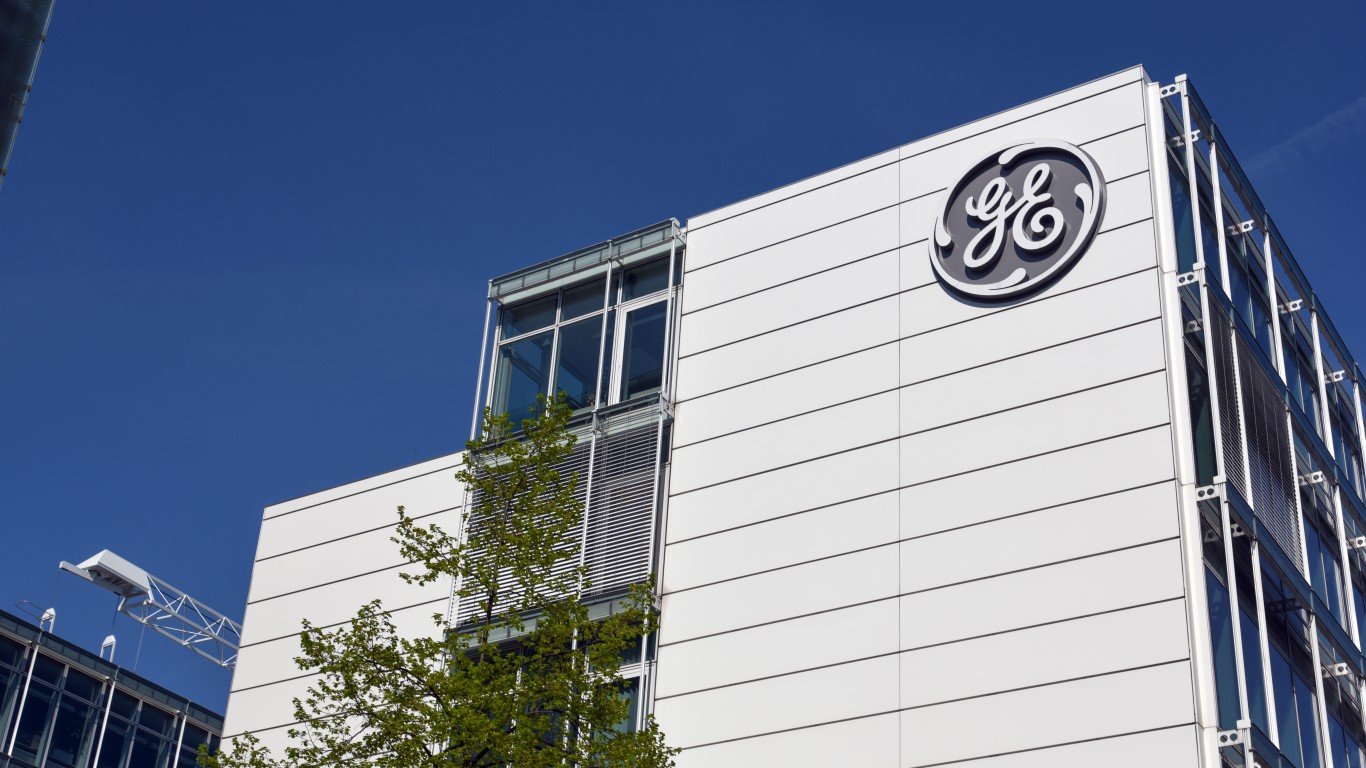

General Electric Co. (NYSE: GE) reported second-quarter results before markets opened Wednesday. The conglomerate reported an adjusted loss per share of $0.15 on revenues of $17.7 billion. In the same period a year ago, GE reported adjusted EPS of $0.16 on revenues of $28.83 billion. Second-quarter results also compare to the consensus estimates for a loss per share of $0.10 on revenues of $17.12 billion.
The worse news may be that GE registered negative free cash flow of $2.1 billion in its Industrial businesses during the quarter, slightly more than double the negative total from a year ago. The company took noncash pretax impairment charges of $877 million in its Aviation segment and $839 million related to its aircraft leasing business. The two charges combined to reduce GAAP earnings by $0.18 per share.
GE took a third charge of $608 million in the Aviation segment related to updated billing and cost assumptions for some long-term service contracts as a result of the COVID-19 pandemic. Offsetting these charges was a $1.8 billion pretax unrealized gain on marking its investment in Baker Hughes to market. That added $0.18 per share to the quarter’s results.
In the Aviation segment, revenue fell 44% to $4.4 billion and new orders fell by 56% to $3.7 billion. The segment posted a net loss for the quarter of $680 million compared to a profit of $1.4 billion last year. The loss was attributed to the $608 million charge, lower volume on the sale of spare parts and lower volume in shop visits.
The company’s Power segment reported revenues down year over year by 3% to $4.2 billion and new orders down 42% to $2.9 billion. The segment posted a net loss of $40 million, compared with a profit of $117 million in the year-ago quarter.
In the Renewable Energy segment, GE posted a 3% decline in revenue to $3.5 billion and a 19% drop in new orders to $2.99 billion. The segment’s net loss of $195 million was attributed to supply chain and project fulfillment issues due to COVID-19.
The Healthcare segment posted revenue of $3.9 billion, down 21% year over year, and new orders of $4.2 billion, down 18%. Net profit fell by 43% to $550 million.
GE Capital posted a loss of $1.5 billion on continuing operations, largely due to the goodwill write-down. Excluding that write-down and costs associated with debt tenders, the segment lost $522 million in the quarter.
CEO H. Lawrence Culp noted that the negative free cash flow amount was better than expected. He added, “[B]ased on what we see today and the actions we’ve taken, sequential improvement in earnings and cash in the second half of the year is achievable. We expect to return to positive Industrial free cash flow in 2021.”
In the first quarter of this year, GE Industrial’s negative free cash flow total came in at $2.2 billion. A $100 million improvement that beat the company’s expectations seems like pretty thin gruel for investors. Of course, “wait until next year” gives the gruel a whiff of hope.
GE did not offer guidance, but analysts expect a loss per share of $0.01 and revenue of $18.7 billion in the third quarter. For the full year, analysts are looking for earnings per share of $0.09 on revenue of $79.03 billion.
Shares traded up about 1.8% at $7.03 in Wednesday’s premarket session. The stock’s 52-week range is $5.48 to $13.26 and the consensus price target is $8.13.
Sponsored: Want to Retire Early? Here’s a Great First Step
Want retirement to come a few years earlier than you’d planned? Or are you ready to retire now, but want an extra set of eyes on your finances?
Now you can speak with up to 3 financial experts in your area for FREE. By simply clicking here you can begin to match with financial professionals who can help you build your plan to retire early. And the best part? The first conversation with them is free.
Click here to match with up to 3 financial pros who would be excited to help you make financial decisions.
Thank you for reading! Have some feedback for us?
Contact the 24/7 Wall St. editorial team.



